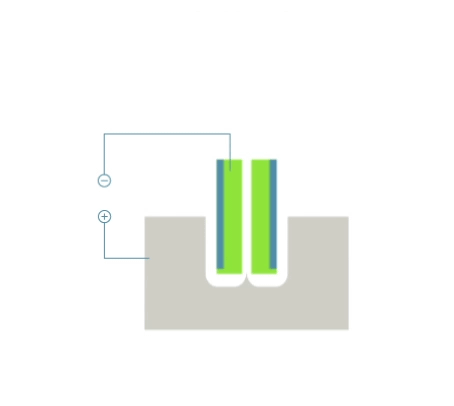Electrochemical machining is a subtractive manufacturing process of conductive materials by eroding them through a suitable chemical reaction under electrolytic conditions. During the flow of current in the electrolytic circuit, anodic oxidation takes place on the surface to be machined (the anode). This process has the opposite purpose to electroplating, i.e. the removal of anode surface layers (ion etching).
Electrochemical machining can be divided into:
- electrochemical contactless machining (ECE) – which uses only the energy of the chemical reactions occurring as a result of the application of electricity;
- electrochemical contact machining (ECA) – where both chemical and mechanical abrasive processes are combined, i.e. chemical and mechanical work is performed;
- anodo-mechanical machining (ECI) – combines chemical, mechanical abrasive and spark discharge processes.

